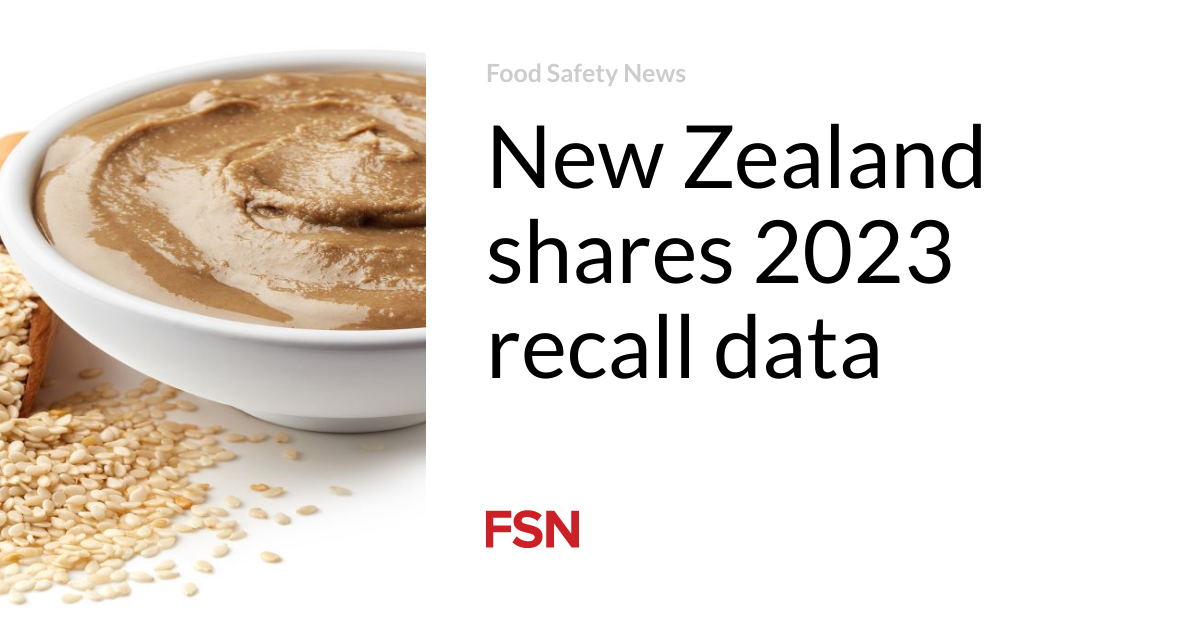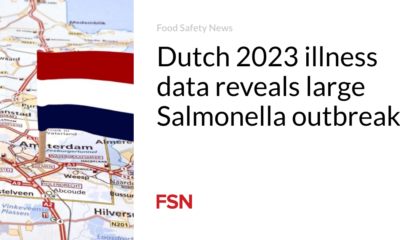Food
New Zealand shares recall data for 2023

Food allergens were the top reason for food recalls in New Zealand in 2023, according to the country’s food agency.
Of the 70 consumer-level recalls in 2023, 26 were due to allergens. Milk caused the most at 12, according to New Zealand Food Safety.
Microbiological contamination led to 23 recalls, 14 of which were due to physical contamination, such as glass, metal and plastic.
Ten recalls were due to Salmonella Montevideo and four due to Salmonella Livingstone. A dairy product was recalled due to non-pathogenic Listeria seeligeri. One recall occurred due to the possible presence of Hepatitis A. Between June 2022 and July 2023, 39 cases of Hepatitis A were reported. The source of the outbreak was imported frozen berries.
Salmonella tahini incident
Mixed foods, such as meals, pies, pizzas and snacks, were cited in 18 recalls, meat and meat products in 12 recalls, and fruits and vegetables in 11 recalls.
The number of recalls has increased compared to 2022, when 60 notices were published. There were 87 recalls in Australia in 2023.
New Zealand Food Safety supported companies in conducting recalls at the consumer level. In total, there were 48 recalls for domestically produced foods and 22 for imported foods in 2023.
Salmonella in imported sesame seed-based products was the most significant food safety event of 2023, resulting in 14 recalls affecting 65 products. Recalls were initiated after Salmonella was discovered during routine testing by a New Zealand company that made tahini products.
“A complex investigation by our food compliance team – which involved product testing and ingredient tracing through the domestic market – revealed that the contamination came from tahini imported from a Turkish manufacturer,” said Vincent Arbuckle, Deputy Director General of Food Safety in New Zealand.
“The team dug deeper, and subsequent online surveillance and scanning of international food safety issues also revealed concerns about products from a manufacturer in Jordan. By the time all sesame seed-based products were identified and removed from sale, we had supported 14 recalls affecting 65 products. And most importantly, we had no confirmed reports of related illnesses.”
Raw milk example
Arbuckle said recalls are a sign that the food safety system is working to protect consumers.
“New Zealand’s food safety system has a strong record of protecting people and – given the volumes of food produced, manufactured and imported – cases of related illness remain rare,” he said.
“However, there are occasions when food safety issues arise, and we work quickly with food companies to recall the affected product, remove it from the food supply chain and increase public awareness. It is important to note that the number of recalls is not an accurate indicator of the level of risk to consumers. The numbers depend on many factors, including regulatory changes, corporate and public awareness of food-related issues and reporting on those issues.”
Another highlight from 2023 was the possible presence of Listeria and Campylobacter in raw milk, which led to three recalls. Although there were no related reports of Listeriosis, there were three related cases of Campylobacter infection.
Of the 70 recalls, 43 resulted from companies notifying New Zealand Food Safety of the required recall, and 16 were initiated as part of the agency’s oversight work, existing investigations or notifications from overseas government agencies.
In 2023, New Zealand sent 57 communications through the International Food Safety Authorities Network (INFOSAN) or to the INFOSAN Secretariat on 23 events or food safety issues. Thirteen of these were related to biological hazards.
(Click here to sign up for a free subscription to Food Safety News.)









